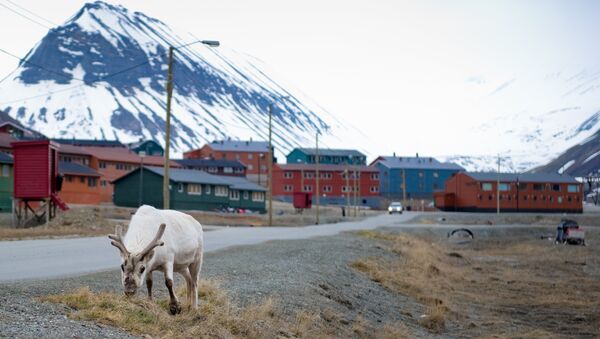"There is a special feeling that I should save my nation's memory on the Arctic island," Eric Cardoso from Mexico's National Archives told NRK.
The World Arctic Archive is run by Piql, a company based in the Norwegian city of Drammen with only 17 employees. Founded in 2002, the company rose to prominence by providing equipment for viewing digital movies in analog movie theaters, a technology used by both Hollywood and Bollywood. With its expertise in film and using both EU funds and support from the Norwegian Research Council and Innovation Norway, they researched the opportunities the film provides as a storage medium. According to entrepreneur Rune Bjerkestrand, it is much safer than conventional hard drives.
Piql fine-tuned old-fashioned photosensitive film technology to store larger amounts of data in multiple layers. Also, the files can be neither altered nor doctored when entered. After running advanced temperature tests, Piql concluded that the technology allows storing data for at least 500 years, but believes that the longevity of the film is actually much higher.
"Actually, we believe that we can save the data using our technology for a whole 1,000 years," Katrine Loen Thomsen from Piql proudly told NRK.
"Runes etched in stone over a thousand years ago are is still readable, but today's storage media is highly volatile," said Stefan Axelsson, an expert in data security and associate professor at the Department of Informatics and Media Studies at the Norwegian University of Science and Technology in Gjøvik.
The archive will be placed in Mine 3, a former coal mine which fell into disuse two decades ago. Conditions inside the mine are very stable and are not affected by the change of seasons. Owing to permafrost, the temperature inside the mines hovers between five to 10 degrees below zero.
Rune Bjerkestrand and Katrine Loen Thomsen from Piql exploring Mine 3 at Svalbard for preparation of the Artic World Archive. #datasecurity pic.twitter.com/QWSdgQzcsx
— Piql AS (@PiqlAs) 3 февраля 2017 г.
Security against cyberattacks is a major advantage for the World Arctic Archive, as it is virtually impossible for foreign actors to steal or otherwise damage the data.
"It is clear that in order to damage the files, you have to physically break into the vault and grab a roll of film," Katrine Loen Thomsen pointed out.
Yet another selling point of the new "doomsday vault" is its security from wars and conflicts. Norway has sovereignty over the archipelago owing to the 1920 Svalbard Treaty, which was signed by 42 countries and effectively made Svalbard a demilitarized zone.
"We can be reasonably confident that no military attack will happen," Pål Berg from the Norwegial coal mining company SNSK said, whereas Tor Eivind Johansen, managing director at the Municipal Archive Institutions Digital Resource Center (KDRS) reminded that archives tend to be the first to be destroyed in wartime.
Its predecessor, the Svalbard Global Seed Vault, is a secure seed bank situated on the Svalbard archipelago about 1,300 kilometers from the North Pole. The idea is to preserve a wide variety of plant seeds that are duplicate samples or "spare copies" of seeds held in gene banks worldwide to insure against the loss of seeds during large-scale regional or global crises.
#Svalbard Global Seed Vault: the world’s largest collection of #CropDiversity with more than 860,000 samples https://t.co/RB7mQN9IVy pic.twitter.com/WAClrr2au2
— Plants EFSA (@Plants_EFSA) 25 января 2017 г.
Never miss a story again — sign up to our Telegram channel and we'll keep you up to speed!







